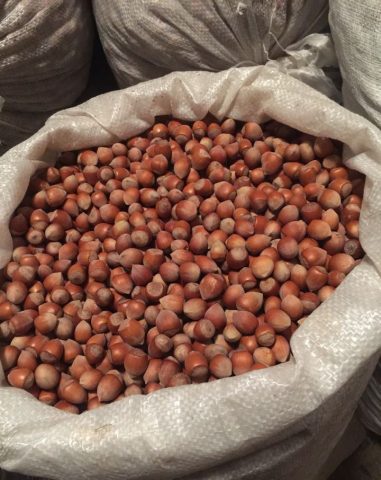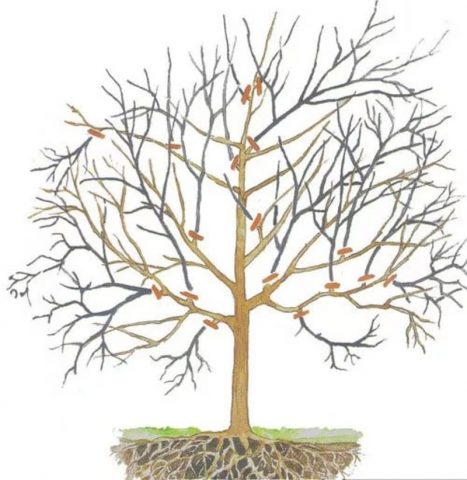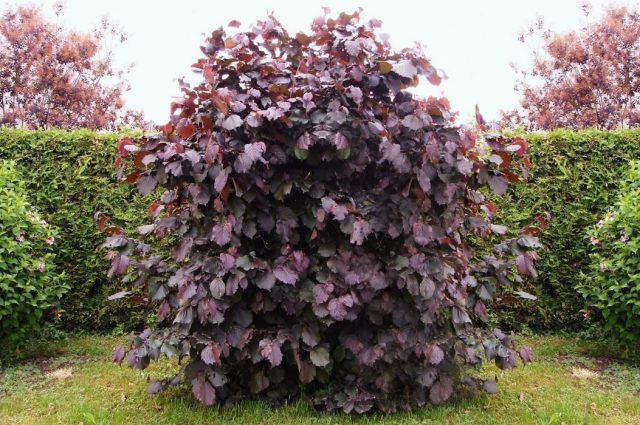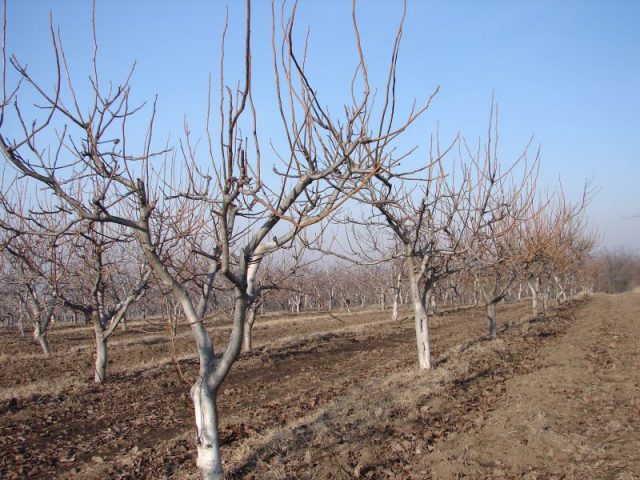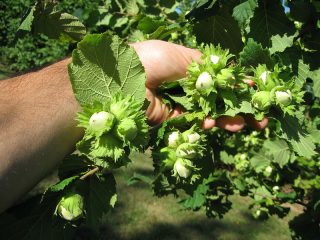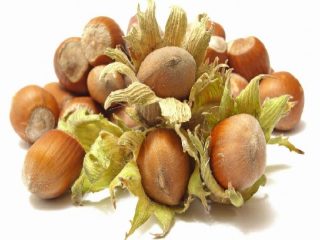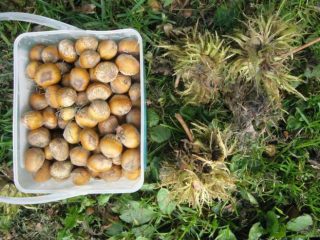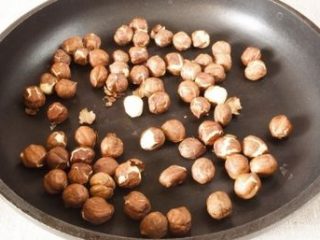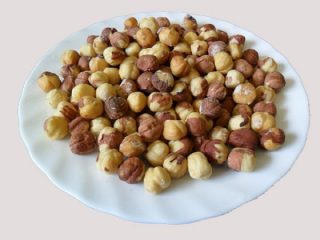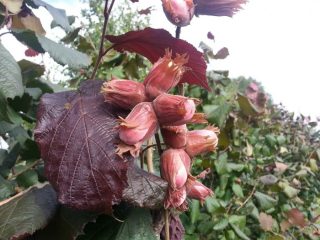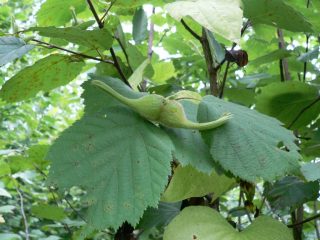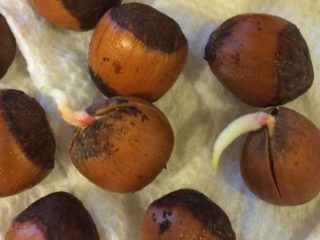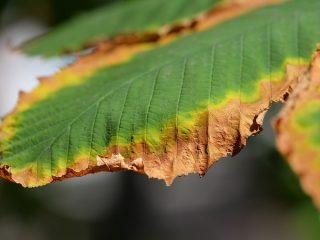Content
Hazelnut pruning schemes in the fall will help novice gardeners to correctly form a productive plant. Everyone independently chooses what shape to give the seedling, bush or standard. Thanks to regular pruning in the fall, the long-lasting garden form of hazelnut will delight with fruit for several decades.
Why do you need autumn pruning of hazelnuts
Maintenance of any tree or bush includes regular pruning. Hazelnut bushes, a garden-shaped hazelnut, which are pollinated by the wind, are also thinned out. A good result will be if the crown is not thickened, and the leaves do not interfere with the movement of pollen. Hazelnut pruning in the fall contributes to:
- more efficient plant development;
- early entry into fruiting;
- better yield;
- good ripening of wood and fruits;
- an increase in the life span of a plant;
- improving winter hardiness;
- resistance to fungal diseases and pests.
Pruning, which is carried out in the fall, regulates the timing of the spring growing season of hazelnuts, including the beginning of flowering and the development of branches. The goals that the gardener achieves:
- the formation of a sparse light crown, where sunlight and air flows freely enter;
- stimulating the growth of more short fruiting branches at the tops of all shoots.
Timing of pruning hazel
The optimal time for planting hazelnuts is autumn. At the same time, the first pruning is carried out, proportionally leveling the ratio of the mass of branches and roots. Usually only 20 cm of shoot is left. It is very important to prune hazelnuts in the fall, starting from 5-6 years of development. The nut enters the fruiting period, which, with proper agricultural technology, can last more than 100 years. Hazelnuts are vigorous, especially a lot of root suckers appear. For a decent yield, the crown must be lightened annually, and the shoots must be removed.
Start pruning after leaf fall. Pruning hazel in the fall for beginners only seems like a daunting process at first. You need to carefully study the tips and schemes and begin to form the plant. In spring, pruning is carried out in March, before flowering, and in the south, even in February, if there are no severe frosts in the long-term forecast. Dried shoots treated with this special technique in August are pruned at the bud in the flowering phase. They try to leave 3-4 buds with female flowers on the branch.
Hazelnut branches are dried by breaking off so that the wood does not grow in length, but the wood ripens well. The procedure is carried out with the strongest branches. Break their 3-5-centimeter tops with your hands and leave in this form until spring pruning. The most abundant harvest is obtained on such branches.
How to properly prune hazelnuts in the fall
It is important to carry out the first pruning in the fall when planting or in the spring on an already rooted seedling. If you leave all the branches, in the spring leaves will bloom on them, which weak roots will have to feed to the detriment of their development. In hot spring, active evaporation from the leaf blades also occurs, during which the root system dries up. A plant that has undergone pruning begins growing a week later. At this time, the root system works almost for itself and easily takes root. The main principle of cutting a hazelnut seedling in the fall is that the fewer thin roots, the more you need to cut the shoots.
In the first years of growth, young hazelnuts form a fruiting crown of 6-8 strong shoots. Weak trunks are cut in the fall at ground level, as low as possible. The tops of the left shoots are pruned by a third of the growth in order to stimulate the appearance of overgrowing branches with fruitful buds. The next year, short fruiting branches begin to grow on the tops of the skeletal branches, which must be preserved and removed only due to sanitary cleaning. Pruning of well-developed lateral branches to the middle of the length is carried out. Carefully examine the young shoots, noting those shoots where there are female flowers. In the summer they are not pruned, and in the fall the weakest are removed from them after harvest.
How to cut hazelnuts for a bush
In nature, hazel grows in the form of a bush, so hazels are more often found with such a harmonious silhouette. In height, the shoots are almost not cut off, they pay attention to their thinning. The shape of the bush is created immediately after planting. Shoot pruning is done low, leaving only 6-7 buds, which is approximately equal to 14-22 cm in height. This procedure stimulates the development of lateral shoots and the formation of shoots that will become skeletal branches.
In the second or third year of growth, rationing of hazelnuts begins in the fall, weak shoots and those that grow in the center of the bush are removed. By opening the middle for free access to sunlight and air flow, they lay the future successful harvest. Under warm rays, the wood will ripen better and create more fruit twigs and buds. That is why it is obligatory to prune hazelnuts in the fall, which is also confirmed by the video for novice gardeners. It is better to leave no more than 9 shoots for fruiting.
All of these skeletal branches are also regularly pruned in the fall to create short, fruitful shoots. Lateral shoots on skeletal shoots are cut off to 3-4 buds, and the tops of these leading shoots are cut off 1/3 or ½ for strong growth. The cut is always made over the kidney that grows outward. The bush is formed in the form of a bowl or "boat".
At the cup-shaped crown in the fall, the central conductor is shortened, and the higher shoot from the outer bud is folded back with improvised means to free the center of the hazelnut bush. For the second type of crown, the side branches are attached to two trellises, leaving the middle open. The first type of crown is applied to a lonely growing hazelnut, and the second - if the bushes are planted in a row.
How to trim hazelnuts for wood
This type of trimming of common hazel and hazelnuts is not so popular, but many gardeners practice it for the sake of a spectacular impression. There is an opinion that the hazelnut stem in the same conditions with the bush formation is less productive. At the same time, with proper pruning in industrial cultivation, standard hazelnut gives a higher yield per 1 sq. m due to the fact that planting walnut trees on the same area is more compact.
This type of shaping has a number of advantages:
- the stem is easier to care for;
- fruiting is accelerated;
- compact fit for increased collection;
- the duration of fruiting and tree life.
When shaping hazelnuts with a tree in the form of a bowl, they adhere to the following standards:
- tree height up to 2-3 m;
- the recommended stem height is up to 40 cm;
- at 4 years of age 6-7 skeletal shoots;
- the number of branches in an adult specimen is up to 10-15 pieces.
For effective branching, summer increments are shortened annually by half. Reduce the height if desired. Root shoots and thickening branches are removed in the fall. The bowl is formed in the late flowering phase.
Rejuvenating pruning of old hazel
From the age of 20, the hazelnut bush gradually rejuvenates, cutting out 1-2 branches every year. A new bowl or trellis is created by cutting from root suckers. In the fall, sometimes radical rejuvenating pruning is carried out, removing all shoots, and re-forming a bush from the growth.
Sanitary pruning of hazelnuts in the fall
Regularly clean the bushes and trunks of the garden large hazel and hazel through pruning in the fall on the ring:
- root shoots are cut off at the base;
- remove dry and weak branches, leaving fruitful ones;
- shoots that are sent to the inside of the crown.
Caring for a nut after pruning
After radical cutting of hazelnuts in the fall, the bush is spud up to a height of 7 cm with humus or compost. Mandatory watering and feeding, and in hot weather - mulching the trunk circle.
Conclusion
Hazelnut pruning schemes in the fall are quite simple and within the power of beginners in gardening. Careful adherence to the advice, processing the cuts with pitch or oil paint, and further feeding the plant will give undoubted results.
